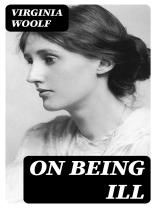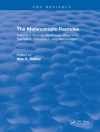In ‘On Being Ill, ‘ Virginia Woolf explores the intricate relationship between illness and consciousness, presenting a poignant meditation on the human experience of sickness. Written with Woolf’s characteristic lyrical prose, the essay navigates the often-overlooked emotional and psychological dimensions of being unwell. Set against the backdrop of early 20th-century modernism, it reflects her innovative style that blends stream-of-consciousness with rich imagery, examining how illness not only disrupts the body but also alters one’s perceptions of the world, art, and selfhood. Woolf’s insights into the ways illness shapes and distorts reality are particularly relevant, as she critiques societal expectations and the cultural narrative surrounding health and wellness. Virginia Woolf, a key figure in modernist literature, was deeply influenced by her own struggles with mental health and chronic illness, experiences that shaped her understanding of human fragility. Her innovative narrative techniques and keen observations on gender, society, and the self reflect her broader literary endeavors, making her one of the most vital voices of her time. ‘On Being Ill’ specifically captures her intimate connection to the theme of illness, transcending mere personal experience to comment on the collective human condition. Recommended for readers and scholars alike, ‘On Being Ill’ is a profound and insightful exploration that resonates beyond the confines of illness itself. Woolf’s delicate yet incisive examination of suffering invites reflection on how we perceive both health and the human spirit. It is an essential read for anyone interested in the intersections of literature, psychology, and the complexities of the human experience.
Giới thiệu về tác giả
Virginia Woolf, born Adeline Virginia Stephen on January 25, 1882, stands out as one of the foremost Modernist literary figures of the 20th century. Her reputation is built upon her pioneering narrative techniques and a lyrical style that delved deep into the psychological depths of her characters. Woolf was a key member of the Bloomsbury Group, an assemblage of English writers, intellectuals, and artists. In her essay ‘On Being Ill’, Woolf explores the experience of illness and the solitary journey within. The piece adds to her illustrious body of work that includes novels such as ‘Mrs. Dalloway’ (1925), ‘To the Lighthouse’ (1927), and ‘Orlando’ (1928). Woolf’s writing is characterized by its stream-of-consciousness approach, which seeks to capture the tumultuous flow of thoughts and feelings. Her work not only reflects her literary prowess but also her insights into the social issues of her time, including the status of women, which she notably discusses in ‘A Room of One’s Own’ (1929). Woolf’s influence on feminist criticism and contemporary literature is indelible, and her essays and novels continue to resonate with new generations. Plagued by mental health issues for much of her life, Woolf’s personal struggles infuse her writing with an intimate understanding of human vulnerability. She died by suicide on March 28, 1941, leaving behind a legacy that forever altered the landscape of literary arts.












